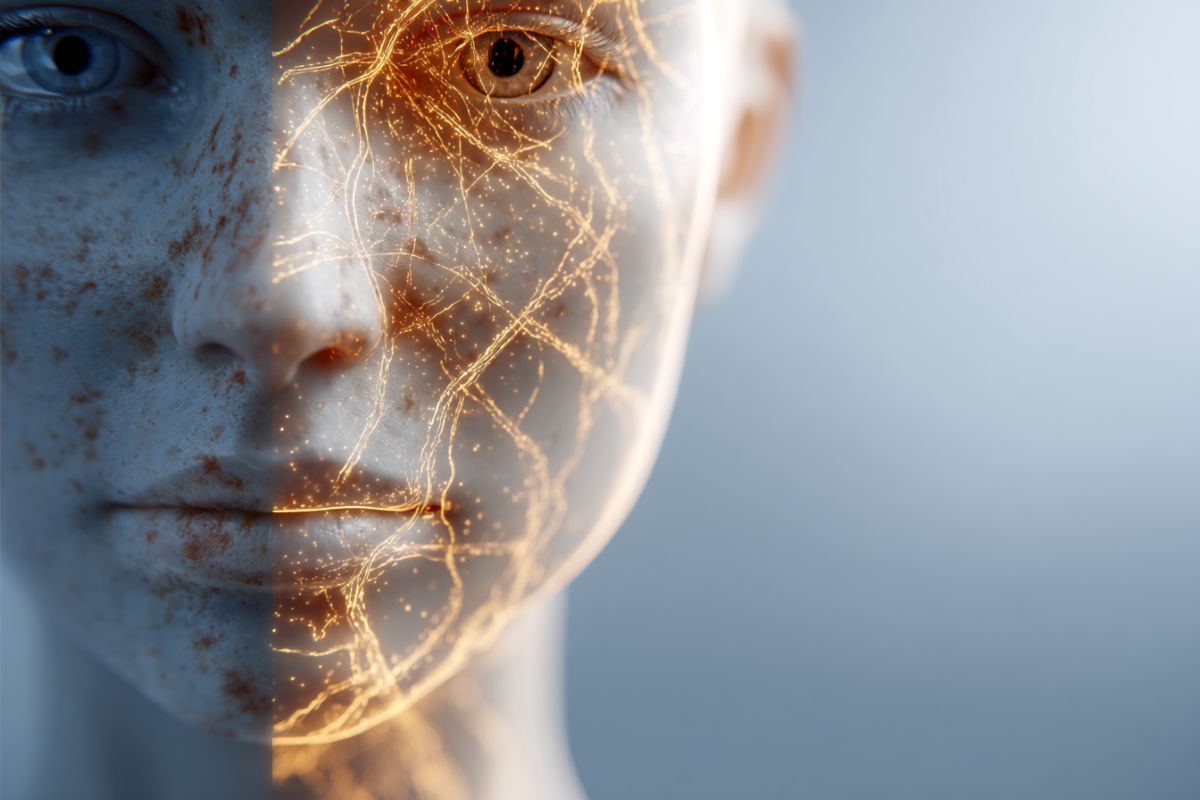Summary: New research reveals that mental health patients experiencing their first episode of psychosis are more likely to have skin conditions, and that these patients face significantly higher risks of depression and suicidality. In a study of 481 individuals, those with dermatological symptoms such as rashes or itching were over three times more likely to report suicidal thoughts.
The findings suggest that skin issues could serve as an early biological marker of poor psychiatric outcomes, much like a warning sign in physical health. Scientists believe this connection may arise from shared developmental and inflammatory pathways between the brain and skin.
Key Facts:
- Increased Suicide Risk: Around 25% of patients with skin symptoms experienced suicidal thoughts or attempts, compared to 7% without them.
- Shared Origins: The skin and brain both develop from the same embryonic tissue, potentially explaining their linked vulnerabilities.
- Clinical Implications: Dermatological symptoms may serve as early indicators of more severe mental health outcomes in psychosis.
Source: European College of Neuropsychopharmacology
Scientists have discovered that mental health patients who have skin conditions may be more at risk of worse outcomes, including suicidality and depression.
This work, which may aid in identifying at-risk patients and personalising psychiatric treatment, is presented at the ECNP meeting in Amsterdam.
The researchers looked at 481 patients with a first episode of psychosis (which is the first time an individual experiences a psychotic episode, such as loss of contact with reality, hallucinations and delusions).

On testing, 14.5% were found to have dermatological symptoms (24% female, 9.8% male) such as rash, itching, photosensitivity, etc. All patients were given 4 weeks treatment with an antipsychotic and then checked for a range of mental health parameters.
Lead researcher, Dr Joaquín Galvañ (Instituto de Investigación Sanitaria Gregorio Marañón, Madrid) said:
“After 4 weeks of follow-up, patients with a first episode of psychosis presenting with skin conditions experienced higher levels of depression and risk of suicide.
“We found that just 7% of the patients without the initial skin conditions had suicidal thoughts or attempts, in contrast, around 25% of the patients with initial skin conditions had suicidal thoughts or attempts.
“Initial skin conditions are also linked to greater depression and poorer well-being at follow-up.
“This discovery suggests that the presence of skin conditions indicates that these patients are more at risk for worse outcomes than patients who do not have skin conditions after a first episode of psychosis”.
The researchers note that, if confirmed, this finding has the potential to act as an advance marker for mental health risk, similar to the way, a blood test might indicate a greater risk of cancer or heart disease.
The brain and the skin both derive from the same embryonic origin – the ectoderm – prompting the researchers to investigate the relation between the skin and mental health.
Dr Galvañ continued:
“It was already known that between 30% and 60% of people with skin conditions show psychiatric symptoms. What we have done is look at things from the opposite direction; do people with mental health problems have skin conditions, and if so, can this tell us anything useful?
“Our findings suggest that dermatological symptoms may represent a marker of illness severity and poor short-term outcomes in the early stages of psychosis, potentially identifying a subgroup of patients with a poorer clinical prognosis who may benefit from early tailored interventions.
“The reason for the connection is still unclear, but our working hypothesis is that this may be due to the skin and neurological systems having common developmental origins and inflammatory pathways; but this needs to be confirmed.
“As far as we know this is the first study to show this link in patients with psychosis, so we need follow-up studies to confirm the finding. We also need to understand if this link applies also to a range of other psychiatric conditions, such as bipolar disorder, ADHD, anxiety or depression”.
Commenting, Professor Eric Ruhe (Professor of Difficult-to-Treat Depression at Radboud University, the Netherlands) said:
“This is an interesting association between skin problems and a first episode of psychosis. These results need replication in different cohorts but might indeed show a new link between skin and psychopathology.
“As the skin and the brain derive from the same embryonic origin, this would worth pursuing further, both diagnostically and mechanistically (which may be more interesting). For example, this association might be used to culture skin cells to begin to understand which treatment is appropriate”.
This is an independent comment, Professor Ruhe was not involved in this work.
Key Questions Answered:
A: They found that patients with skin issues during their first psychotic episode were far more likely to experience depression and suicidal thoughts.
A: Both originate from the same embryonic tissue (ectoderm) and share inflammatory and signaling pathways that may influence mental health.
A: Dermatological symptoms might help identify high-risk patients early, allowing for faster, more personalized interventions.
About this mental health research news
Author: Tom Parkhill
Source: European College of Neuropharmacology
Contact: Tom Parkhill – European College of Neuropharmacology
Image: The image is credited to Neuroscience News
Original Research: The findings will be presented at the 38th ECNP Congress







